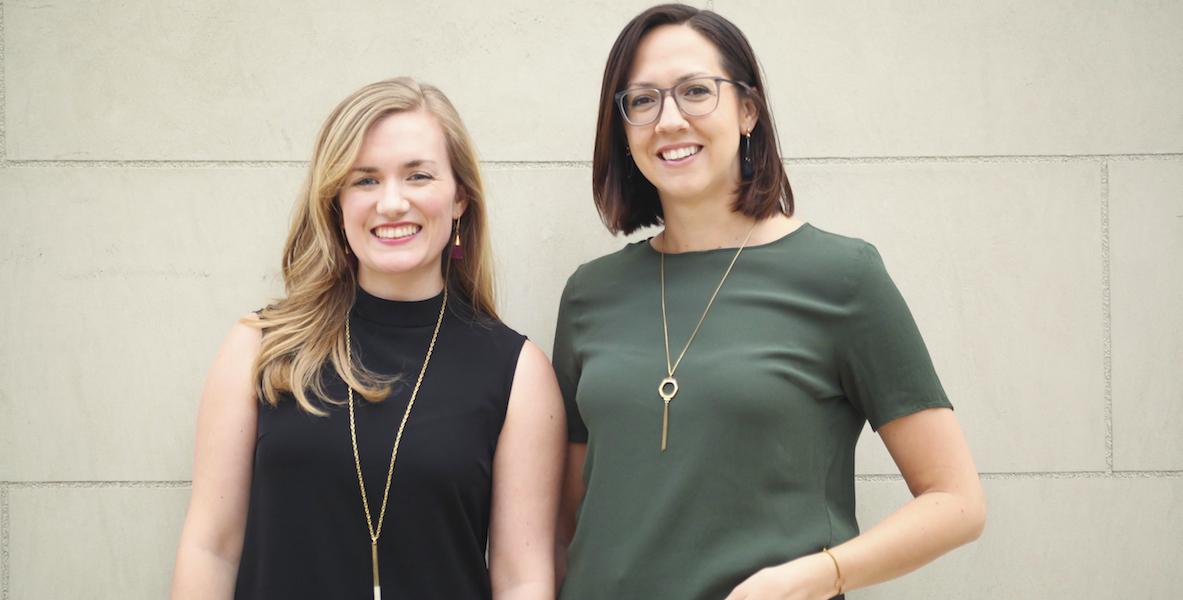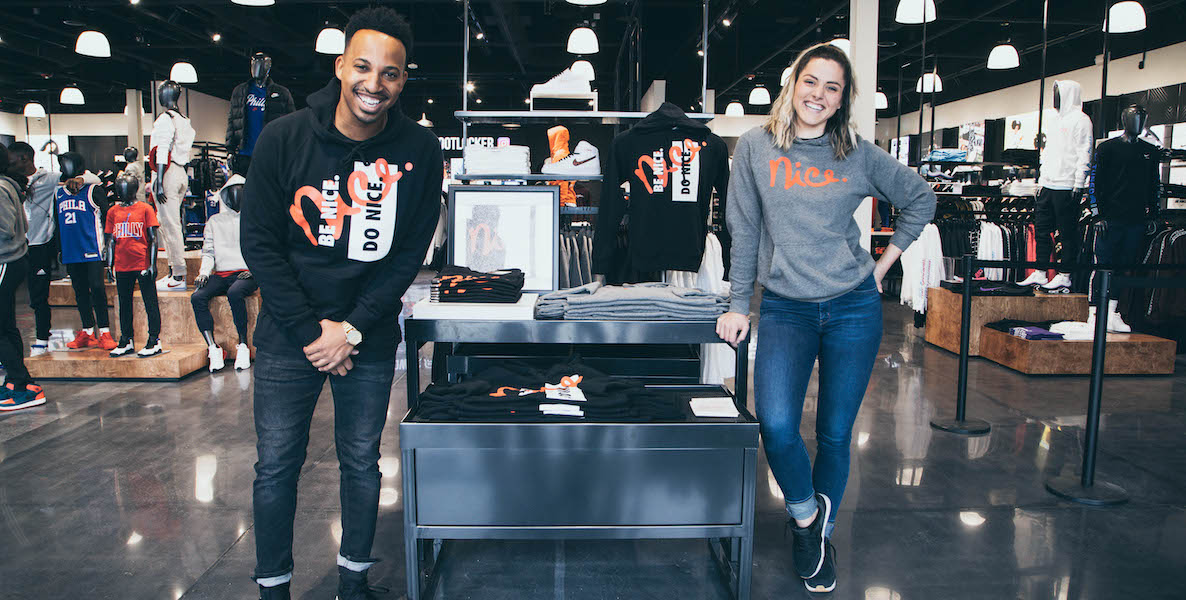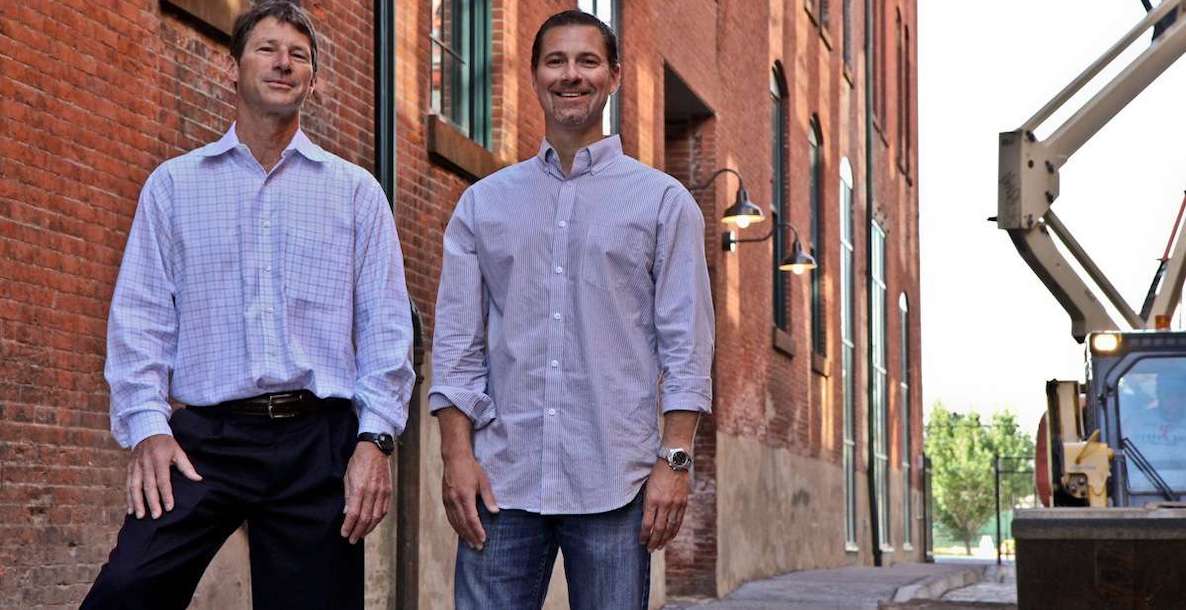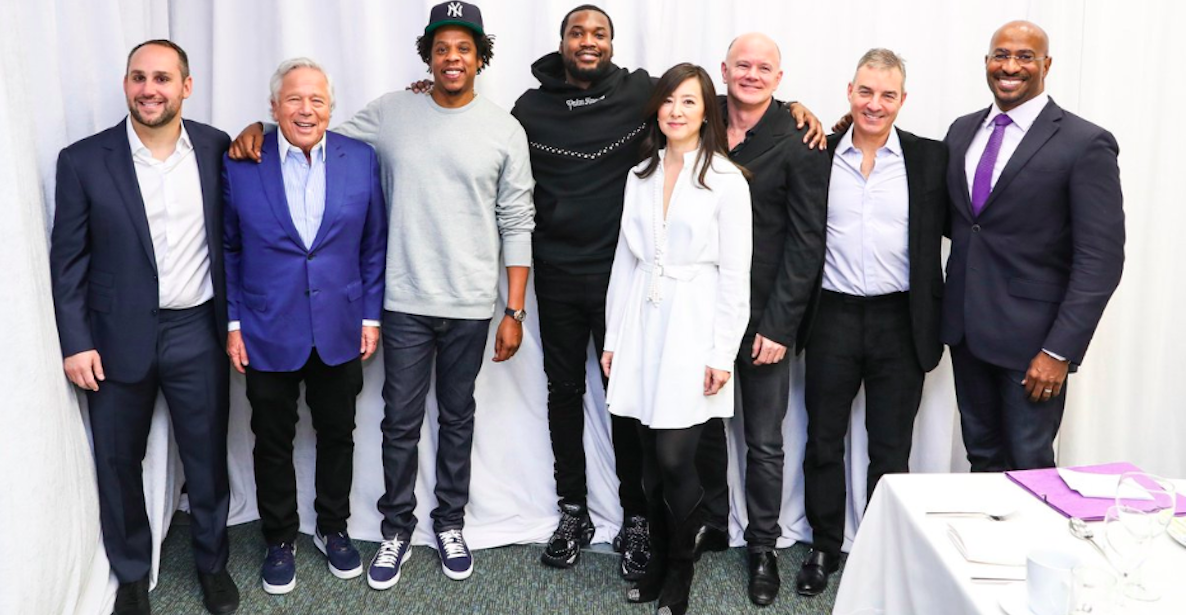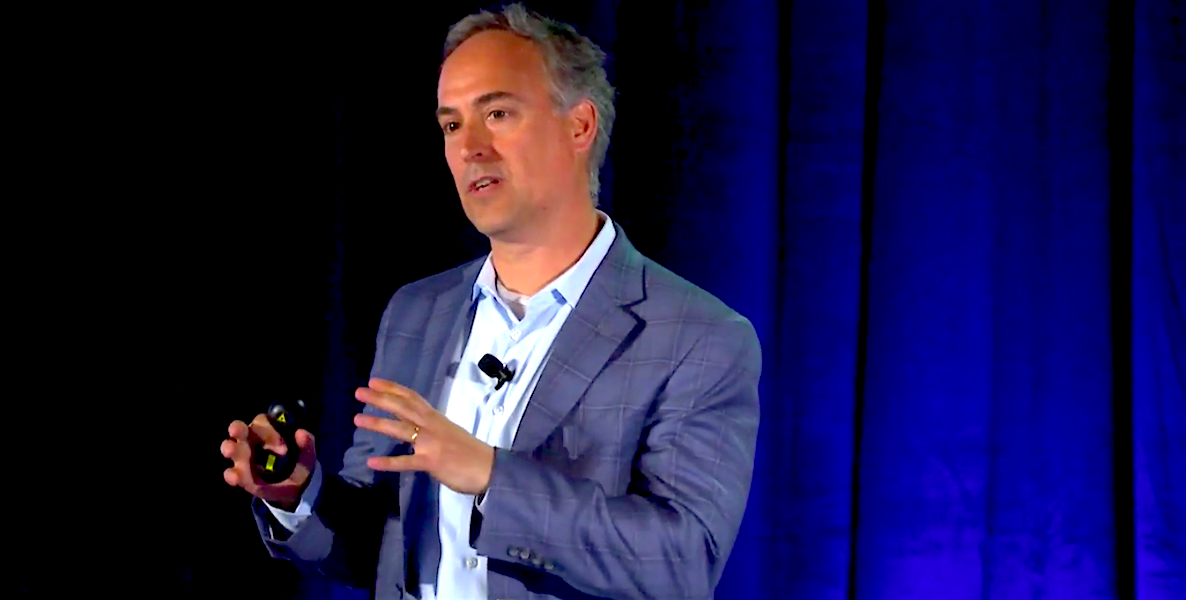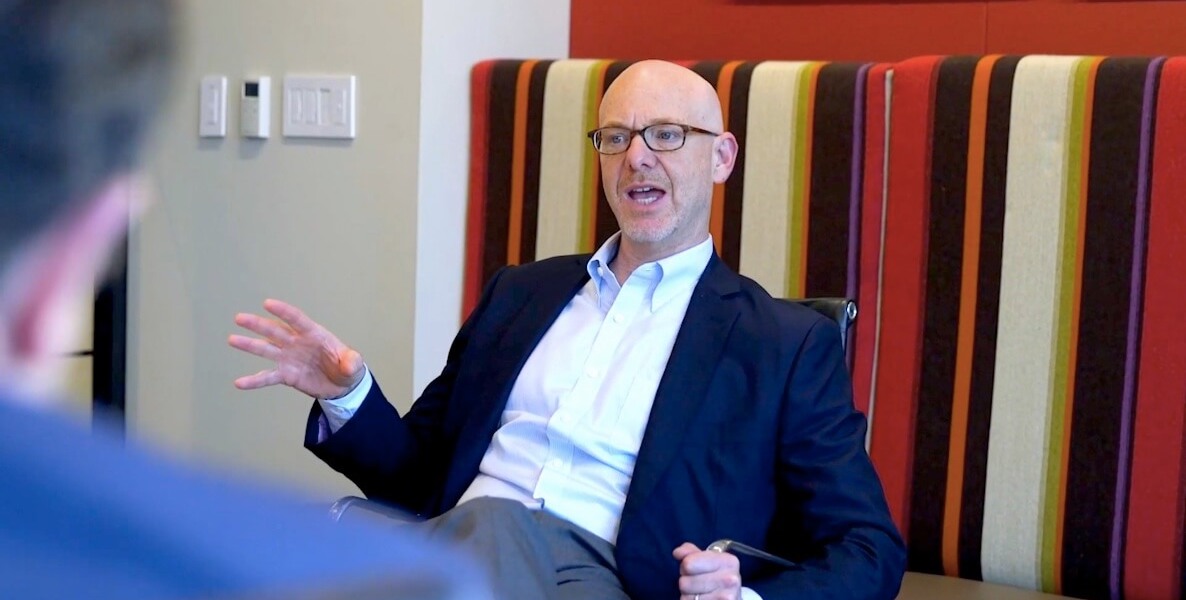It’s 7:30am and the most visionary CEO in Philadelphia is right where his 300-some employees know where to find him, seven mornings a week. He’s in his company’s state-of-the-art gym, stretching and foam-rolling, preparing for his boot camp-style workout. A handful of employees enter, and dap him up. A trainer—one of three full-time—calls them to order, the boss and any staffer who wants to join in; almost all are in their twenties or early thirties, and they’re evenly divided by gender.
What follows is a circuit training workout not for the faint of heart. It’s interval training for those not given to respite. After an hour, after the group has put all hands in and belted out “TEAM!” in unison, as employees scatter for their water bottles or rest with their hands on their knees, there’s that CEO, hanging from a chin-up bar. Just for shits and giggles, it seems, he starts pulling himself up. Again and again and again. There are no eye rolls. He’s not showing off. It’s just Michael Forman, 57, being Michael Forman, the hardest working worker in the building.
MORE ON MICHAEL FORMAN
I’ve come to Forman’s firm to spend a day—including participating in his damn near nocturnal workout—because there’s something happening at FS Investments, the startup he launched in his forties a decade ago amid the ruins of the Great Recession.
A new way of thinking about investment firms
It’s become all too common in our political discourse to hear full-throated denunciations of any entity in the profit game. Socialism is on the rise, and capitalism is under attack. The truth, of course, is far more complicated. Crony capitalism corrodes; Main Street capitalism can empower. You can’t have an economic recovery, after all, without employers. Increasingly, the businesses that will win out in the long run are those that have widened the aperture of their lenses, those who see that doing well and doing good are not necessarily mutually exclusive—and just might be inextricably linked.
As we’ve chronicled, the B Corp, Impact Investing and Social Impact movements all point to this notion that business can help solve societal issues—which has long been the case. (A World Bank report concluded that global capitalism lifted one billion people out of poverty between 1980 and 2008.) Well, Forman’s FS Investments isn’t a B Corp; his isn’t a TOMS shoes model, or Ben and Jerry’s. But what Forman is up to is arguably even more radical. Why? Because, as an asset management firm, FS Investments is in the belly of the beast…and it just may be remaking how we think of investment firms.
In a short period of time, FS Investments has become one of the nation’s leading alternative investment managers, with about $25 billion in assets. Its central innovation, the brainchild of Forman, Campus Apartments CEO David Adelman, and the late Scott Larson, was to democratize investing. (Full disclosure: FS and Campus Apartments have both supported Citizen public events). Ultra-wealthy individuals and institutional investors, like large pension funds and endowments, had long enjoyed access to investments the average citizen did not. FS Investments offers numerous products today. But the genesis of it all came when it made private credit—loans to private companies—open to anyone willing to make a minimum investment of $5,000 who had either $250,000 in net worth, or $70,000 in net worth and $70,000 in income.
The upside is in the return—often in excess of 7 percent annually—and in who is seeing those returns: The perpetually clobbered middle class.
Forman did it through a little-known investment structure called a BDC—a Business Development Company. They’ve long been publicly-traded closed-end funds that act like private investment firms, specializing in debt financing to small and mid-size companies. But FS Investments was the first to offer them to the average individual investor. FS’s BDCs are sold through financial advisors and brokers, some of whom charge clients pricey commissions.
These are high-yielding, sophisticated investments that carry some risk, and they’re priced accordingly. But the upside is in the return—often in excess of 7 percent annually, and sometimes reaching double figures—and in who is seeing those returns: The perpetually clobbered middle class.
“It’s about saving for retirement, saving for education,” says a showered Forman after his workout. Despite his intensity in the gym, Forman in person is understated and thoughtful. His leadership style is more inquisitive than domineering, but his focus is unwavering. He doesn’t go on conversational tangents. He is, above all else, disciplined.
“It’s not public service, but it’s very fulfilling”
We’re now sitting in the FS Investments cafeteria—but calling it a cafeteria doesn’t quite do it justice. Forman is a devotee of “sustainable high performance”; during the job interview process, for instance, every prospective employee undergoes an exhaustive intellectual and personality assessment and, once hired, meets with an in-house trainer to design a personal fitness plan and a nutritionist who assigns each employee a lunch line “zone” designation tailored to their individual health and wellness needs.
On this morning, Forman—did we mention his discipline?—eats just one small cup of oatmeal. “We want our clients to have the same access that the wealthy, the big endowments and the big pension funds have to invest,” he says when I press him on the niche FS Investments has carved out as a driver of middle-class growth, such as it is.
It’s a mindset that stirs a certain amount of pride among FS’s youthful-seeming staff, all of whom work side by side. (Given Forman’s devotion to collaboration and teamwork, there are no offices). Even Executive VP of Corporate Affairs Mike Gerber, who served eight years in the state legislature as a reformist state rep, has caught the fever.
“A lot of politicians talk about creating jobs and encourage companies to be more civically engaged and more committed to social impact, as I did when I was in office,” Gerber says. “Here, we’ve created hundreds of jobs and our mission is about helping folks build better portfolios so they can save for life’s milestones, like paying for college, weddings, and retirement. It’s not public service, but it’s very fulfilling.”
Of course, Forman is quick to point out he’s not running a charity, or a shadow government. FS Investments is most decidedly a for-profit business—but Forman hasn’t let the bottom line be all that his business stands for. Which, he says, ironically inures to the bottom line.
“There is a return on investment that one gets for building a great culture, for engaging the community, for caring about your colleagues,” he says. “That’s how we’ve built this business. We’ve always thought long-term. My partners and I run a private business, so we don’t have to worry about managing from quarter to quarter. If we were public, and shareholders came in here, they would probably say, ‘You can save money and boost the bottom line if you wipe out this whole health and high performance program.’”
Company culture at FS Investments
Those full-time gym trainers, nutritionists and chefs? They’re from EXOS, the Phoenix-based company that prepares college players for the NFL combine. Forman is right that, were FS Investments public, hedge funds and other bean-counting shareholders would no doubt see them solely as an unnecessary expense, rather than as an investment. But FS’s health and high performance program is only Exhibit A in Forman’s full-throated commitment to culture trumping all.
There’s also the company’s emphasis on art, fueling, as Forman sees it, creativity. He and his wife, Jennifer Rice, are significant collectors—she sits on the Philadelphia Museum of Art board—and beauty fills the walls of their 80,000-square-foot Navy Yard space to the point that you have to stop and wonder: This is a financial investment firm?
MORE PHILLY COMPANIES WITH A+ WORKPLACE CULTURE
-
- Truth & Consequences finds big success by taking really good care of employees
- Oat Foundry weaves sustainability into its awesomely out-there projects
- Promptworks thrives with employee- and community-focused business plan
- Saxbys earns B Corp status, certifying its coffee-with-a-mission ethos
- Home Appétit offers delicious, healthy meal deliveries with a do-good twist
FS Investments has a house band, and offers culinary and art classes at night. Twenty employees are docents, giving colleagues and outside groups museum-like art collection tours, during which you can learn all about, say, Theaster Gates, the spellbinding African-American Chicago-based artist whose famous TED Talk chronicles how he started rehabbing vacant houses in his hometown by turning them into artistic enclaves and even pieces of art themselves, creating a new genre of artist-inspired urban renewal.
It’s become all too common in our political discourse to hear full-throated denunciations of any entity in the profit game. The truth, of course, is far more complicated. Crony capitalism corrodes; Main Street capitalism can empower.
“The presence of art, both visual and musical, helps drive more creativity and innovation,” Forman says. “I really believe that.”
Then there are the in-house “mindset coaches”—teaching staffers to think like high achievers—and the “dutiful mindset” that is inculcated in every employee, who gets three paid days off each year to perform community service. Like the rest of the financial services industry, FS’s staff lacks diversity; efforts to correct that include a recent “Check Your Blind Spots” bus parked outside for employees to walk through and learn about their unconscious biases.
The FS Foundation offers a $500 match for every employee’s nonprofit of choice, and spearheads, in partnership with the University of Pennsylvania, a financial literacy program that is currently in 11 Philadelphia schools, and expanding.
“I have always been of the view that we need to give back, we need to be engaged,” Forman says. “You need to think about how you can be a really good corporate citizen. That’s kind of old school, at least here in Philadelphia. You look back in Philly a generation ago, when guys like Ron Rubin, Gerry Lenfest and Lenny Klehr really gave of themselves—their time, their leadership, and their money. Our business community needs to get back to that.”
It’s good for the bottom line, too
Of course, Forman is the first to concede that giving back is also in his firm’s self-interest. FS Investments competes for talent against New York firms —and a big part of the FS sell is Philadelphia, which is partly why Forman—recently honored by the Anti-Defamation League—is so engaged. He sits on the boards of Drexel University, the Franklin Institute, and the Center City District Foundation, and has been the primary force behind Center City’s Fitler Club, which bills itself as the new headquarters for Philly’s young and diverse generation next.
It all ties together. But, for Forman, it didn’t always, and it wasn’t always easy. His father was a hard working, but far from wealthy, Wall Street trader who lost his wife too young and didn’t have the bandwidth to embrace the holistic, emotionally intelligent mindset his son would go on to develop. As a lawyer at Klehr, Harrison in his twenties and thirties, Forman was focused on building his practice—and not on culture. “I’m trying to do at FS much of what we didn’t do at the law firm,” he says. “We worked really hard to be great lawyers. But I personally wasn’t focused on community or culture in those days. I like to think I’m doing much better at that now.”
“We want our clients to have the same access that the wealthy, the big endowments and the big pension funds have to invest,” Forman says.
Jay Coen Gilbert, the co-founder of B Lab and the driving force behind the B Corp revolution, uses a lovely phrase when talking about how business and community need not be in opposition. The best companies, he says, for themselves and the planet, make it so their employees “can bring their whole selves to work.”
Gilbert, who himself co-founded and sold a multi-million dollar business, (the basketball apparel company And1), argues that success—both short and long-term—lies in such a holistic approach. It’s something Forman has learned, too, since those Klehr, Harrison days. He’s always been a healthy eater and a daily workout fiend. That self, he realized, should be his self at work, too. How impactful would it be to have an office full of such self-actuated co-workers?
“One of the reasons we have all these assessments is to understand who we really are,” Forman says. “What do I know about myself?” This is what we can learn from what Michael Forman has built, at a time when the popular narrative is to lambaste companies that sit on $25 billion in assets: When you have an office full of people collaborating side by side, and when they’re open to inspecting themselves, their values and habits in the workplace? When that happens, well, Michael Forman insists, that’s when you can make money and make your community stronger.
Header photo: FS Investments CEO Michael Forman



